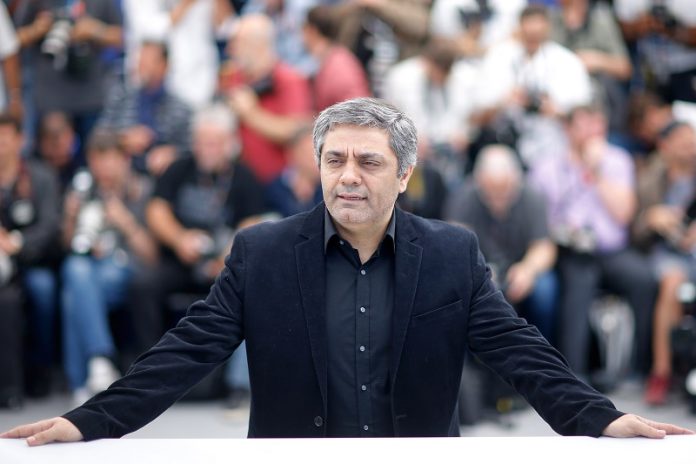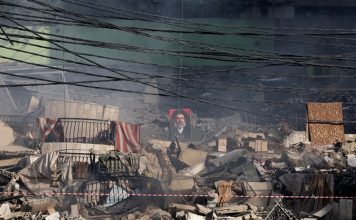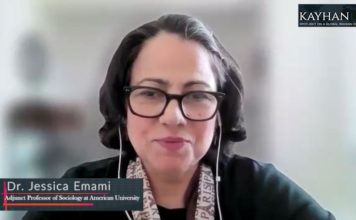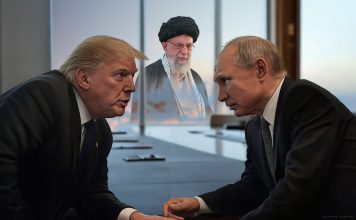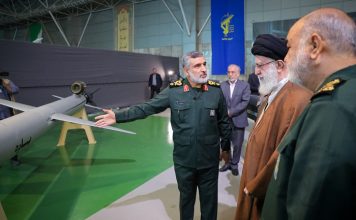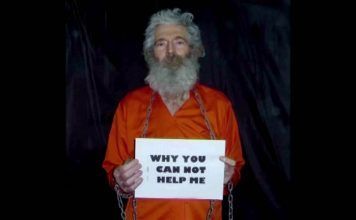By Ahmad Rafat
Iranian Director Mohammad Rasoulof, who has left Iran secretly, will reportedly be on the red carpet at the Cannes Film Festival for the premiere of his latest film, “The Seed of The Sacred Fig.”
Director Mohammad Rasoulof Flees Iran Ahead of Cannes Premiere
The festival, which opened with French filmmaker Quentin Dupieux’s “The Second Act” on May 14, will conclude with the awards ceremony on May 24. Rasoulof’s film, made without a permit and free from censorship, is in the competition for the Palme d’Or, the top award.
Iranian-Danish director Ali Abbasi will also compete for the prestigious Palme d’Or award at the Cannes Film Festival with his film “The Apprentice.”
This puts both men in competition with renowned directors such as Francis Ford Coppola, Paolo Sorrentino, Yorgos Lanthimos, David Cronenberg, and Agathe Riedinger.
Mr. Abbasi’s “The Apprentice” delves into the early years of former U.S. President Donald Trump – who is running for re-election this year — focusing on his business career in New York during the 1970s and 1980s. The film highlights Trump’s relationship with Roy Cohen, a prominent New York lawyer.
“The Apprentice” was a highly acclaimed reality TV show in the United States and several other countries. Trump hosted it for 15 seasons from 2004 to 2015.
Abbasi’s “Holy Spider” was screened at the 75th Cannes Film Festival in 2019, securing the Best Actress award for Iranian-born Zar Amir-Ebrahimi, who played the lead role in the film. The film delved into the topic of religious murders that were occurring in Mashhad, the capital of the northeastern province of Khorasan Razavi.
Mohammad Rasoulof’s “The Seed of The Sacred Fig” delves into Iran’s ‘Woman, Life, Freedom’ movement. It was produced without an official state permit and defied mandatory hijab laws. The film tells the story of a judge at the Tehran Revolutionary Court who, amidst the nationwide protests, loses his gun and develops suspicion and paranoia toward those around him, including his wife and young daughters.
The synopsis and stills from “The Seed of The Sacred Fig” show that the film aligns with the dissident filmmaker’s established pattern of exploring societal issues that often remain unaddressed in a culture where individuals conform to universally accepted norms despite facing institutionalized oppression and systemic corruption.
Who is Mohammad Rasoulof, Winner of the Berlin Film Festival’s Golden Bear Award?
Meanwhile, Johnny Depp’s film “Modi,” featuring Al Pacino in a supporting role as the real-life French art collector Maurice Gangnat, will be screened out of competition at this year’s Cannes Film Festival. The film marks Depp’s return to directing since his 1997 feature “The Brave.” It delves into the life of Italian artist Amedeo Modigliani (1884-1920) over 48 hours. Produced by Iranian-born Barry Navidi, known for his work on several significant American films, “Modi” brings together a talented cast and crew to portray this intriguing narrative.
Rasoulof’s filmography includes titles such as “Manuscripts Do not Burn” (2013), “A Man of Integrity” (2017), “There is No Evil” (2020), and “International Crime” (2022).
Rasoulof was last arrested in the summer of 2022 after signing a statement titled “Put down your gun.” Despite being released the following February, he has been under a travel ban ever since. The most recent development in his legal battles was an 8-year prison sentence, which sparked protests. The Writers’ Association of Iran has called for an “immediate and unconditional” reversal of this verdict.
In a statement on May 8, the Iranian Independent Filmmakers Association (IIFMA) said: “The sentencing of Mohammad Rasoulof to imprisonment, lashing, and the confiscation of his property is an example of the Islamic Judicial system in Iran being used as a tool for seeking revenge on political dissidents. This action serves as a reminder that authoritarianism often masks itself as power but is ultimately driven by fear.”
“The Islamic regime in Iran is facing failure both domestically and internationally. [It] has attempted to assert its strength through brutal tactics such as the murder and sexual assaults of protesting youths, detention of women who defy the mandatory hejab and imposing economic hardship on the Iranians,” the statement added.
The statement noted that “the Islamic regime in Iran, facing failures both domestically and internationally,” l has resorted to asserting its authority through harsh measures such as “the killing and sexual abuse of protesting youths, arresting women who challenge the compulsory hejab, and inflicting economic hardships on the Iranian population.” IIFMA argued that a regime built upon “the suffering of its people is inevitably destined to collapse soon.”
“IIFMA, along with freedom lovers worldwide, denounce the absurd sentencing of Mohammad Rasoulof. We stand in solidarity with him and all artists who resist censorship, bravely challenging the regime’s legitimacy,” the statement concluded.
Rasoulof is among a select group of Iranian filmmakers whose films have been in the official Cannes competition over the years. This list includes renowned filmmakers such as Abbas Kiarostami, Asghar Farhadi, Jafar Panahi, Mohsen Makhmalbaf, Samira Makhmalbaf, Nasser Taghvai, Abolfazl Jalili, and Saeed Roustayi.
Kiarostami is the only Iranian director to have won the prestigious Palme d’Or at the Cannes Film Festival. In 1997, Kiarostami and Japanese filmmaker Shohei Imamura jointly received the Palme d’Or award for their respective films, “Taste of Cherry” and “The Eel.”
However, Iranian filmmakers have achieved recognition in other sections of the Cannes Film Festival. Notably, Mohammad Rasoulof’s film “Goodbye” secured the Un Certain Regard Directing Prize for 2011. Rasoulof’s work “Manuscripts Do not Burn” was honored with the FIPRESCI Prize in 2013, and his “A Man of Integrity” received the prestigious Un Certain Regard award in 2017.
Several Iranian directors have been recognized and awarded at the Cannes Film Festival in previous years for their outstanding contributions to cinema. Ali Abbasi’s film “Border” received the Un Certain Regard award at the Cannes Film Festival 2017. Jafar Panahi’s “The White Balloon” was honored with the Prix de la Camera d’Or at Cannes 1995. His “Three Faces” won the Best Screenplay award at Cannes in 2018.
Bahman Ghobadi’s debut feature, “A Time for Drunken Horses,” secured the Camera d’Or at the 2000 Cannes Film Festival. His “No One Knows About Persian Cats” received an Un Certain Regard Special Jury Prize ex-aequo when it premiered at Cannes in 2009. Ida Panahandeh’s “Nahid” was awarded the Un Certain Regard Avenir Prize in 2015.
Approximately 40 films from Iranian cinema were submitted to the Cannes Film Festival office for consideration this year. Of these entries, 35 were produced in Iran. These films delve into themes such as immigration, family relationships, and narratives associated with the ‘Women, Life, Freedom’ movement. Exploring these topics in Iranian cinema reflects the social realities and challenges individuals face in Iran.
https://kayhanlife.com/culture/film/awardwinning-filmmaker-rasoulof-speaks-to-kayhan-life-movie-is-out-in-europe/

